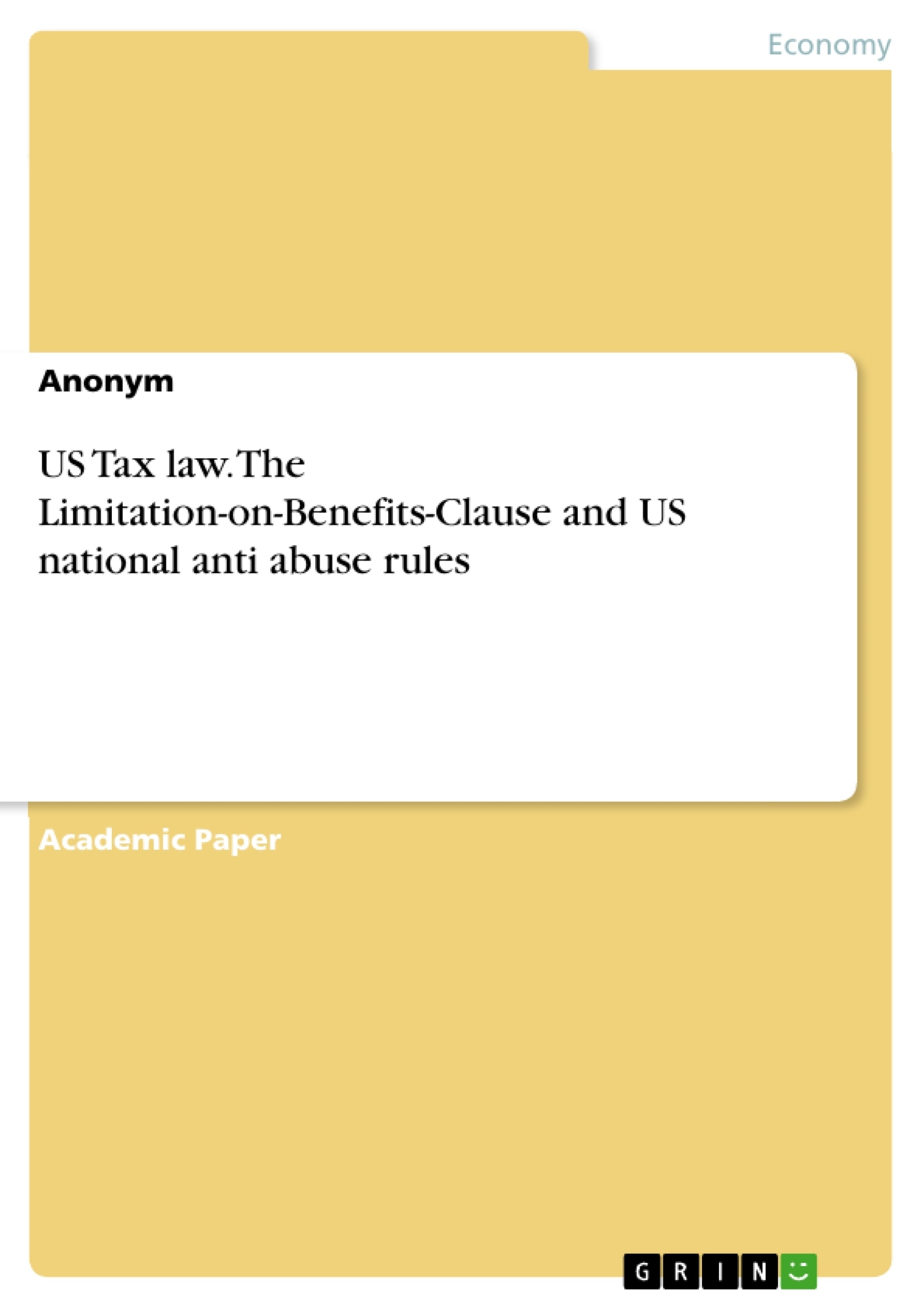Double Taxation Treaties (“DTT“) are treaties between two or more countries to avoid international double taxation of income and property of individuals or legal entities. The main purpose of DTT is to divide the right taxation between the involved countries, to avoid differences in taxation and to ensure taxpayers’ equal rights and security. International tax planning has become a serious concern and companies started to shift their income to low-taxed jurisdictions. Therefore, states with a higher taxation fear for their tax revenues. That is the reason why the prevention of abusive use of tax treaty benefits became a central aspect in the tax treaty policy of most industrialized countries.
Table of Contents
- 1. Introduction
- 2. Purpose and basic operation of the LOB
- 3. Structure of the Article
- 3.1 Individuals and Contracting States
- 3.2 Publicly-Traded-Corporations
- 3.3 Tax-Exempt Organizations and Pension Funds
- 3.4 Other legal entities
- 4. National anti-abuse rules
- 5. Summary
Objectives and Key Themes
This paper aims to provide an overview of the national and international anti-abuse regulations of the USA. It focuses primarily on the Limitation of Benefits Clause (LOB) and its operation, delving into its structure and specific tests such as the Base-Erosion-Test, Derivative-Benefit-Test, and the Active-Business-Test. The paper also examines the US national anti-abuse provisions, aiming to provide a comprehensive understanding of the US approach to preventing treaty shopping.
- The purpose and operation of the LOB
- The structure of the LOB and its various categories of eligible beneficiaries
- The application of the LOB to different types of entities and income
- The national anti-abuse provisions of the USA
- The prevention of treaty shopping and the protection of tax revenues
Chapter Summaries
- Chapter 1: Introduction - Introduces the concept of Double Taxation Treaties (DTT) and their role in preventing international double taxation. It highlights the increasing concerns about international tax planning and the need to prevent treaty shopping.
- Chapter 2: Purpose and basic operation of the LOB - Explains the LOB as a complex anti-treaty shopping provision intended to prevent third-country residents from benefiting from tax treaties. The chapter outlines the LOB's objective tests and its focus on objective connections rather than the taxpayer's intentions.
- Chapter 3: Structure of the Article - Discusses the structure of the LOB, particularly the different categories of eligible beneficiaries outlined in paragraph 2 of the treaty. The chapter focuses on the conditions for qualifying as an entitled person and emphasizes the specific tests included in the respective paragraphs.
- Chapter 4: National anti-abuse rules - Examines the national anti-abuse provisions of the USA beyond the LOB. It explores other regulations, such as the Conduit Principles and Economic Substance Doctrine, that aim to prevent treaty shopping and ensure fair tax practices.
Keywords
The paper focuses on key concepts such as the Limitation of Benefits Clause (LOB), treaty shopping, international tax planning, anti-abuse provisions, national and international tax regulations, DTT, Base-Erosion-Test, Derivative-Benefit-Test, Active-Business-Test, Conduit Principles, and Economic Substance Doctrine. These keywords encapsulate the primary themes and areas of research within the context of US tax law and its approach to combating tax avoidance.
- Quote paper
- Anonym (Author), 2020, US Tax law. The Limitation-on-Benefits-Clause and US national anti abuse rules, Munich, GRIN Verlag, https://www.grin.com/document/955813




